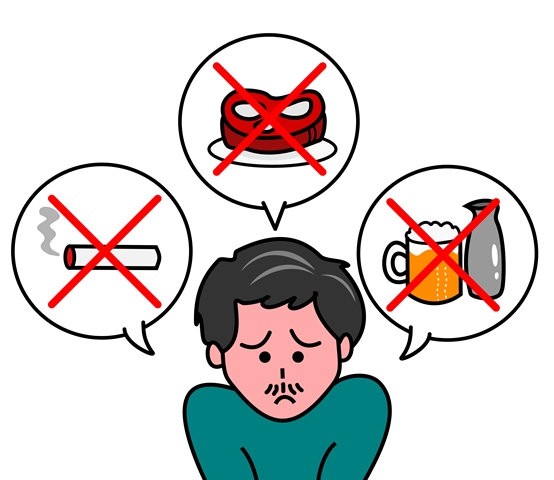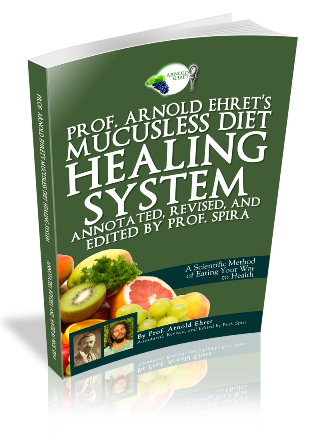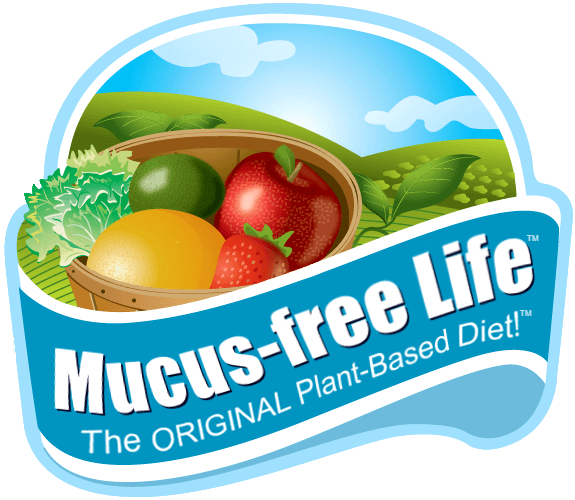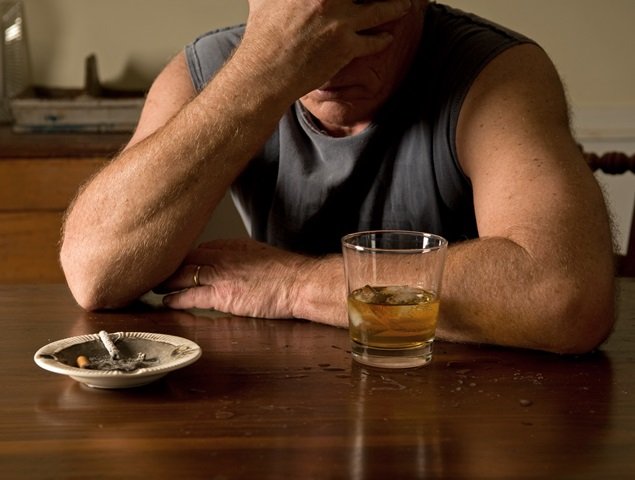Articles, Mucus-free Lifestyle, Mucusless Diet, Rational Fasting, Writings about Arnold Ehret, Writings by Arnold Ehret
Smoking and Alcohol: Did Arnold Ehret use Drugs?
Smoking and Alcohol
Historical and socio-cultural contexts are important to consider when critically examining the works of historical figures, including Arnold Ehret. An article written by Ehret entitled “Lebensfragen,” or “Life Issues,” originally published in “Vegetarische Warte” circa 1909 (or 1910), has generated a number of questions among dedicated researchers of Ehret’s work about his potential use of intoxicants.
“Kranke Menschen,” one of Ehret’s first major publications, was published before “Life Issues,” as per his reference to it throughout the article, and Ehret had already made a name for himself among people interested in natural healing.
Ehret discusses a handful of controversial issues based upon empirical data collected through self-experimentation. Thus, the purpose of “Lebensfragen” was not to provide a systematic approach to fasting and mucusless diet for others to follow, which is the purpose of his Rational Fasting and Mucusless Diet Healing System texts, but to provide a candid case study of his own personal experiments and experiences thereof.
The readership of the “Vegetarische Warte” were people interested in plant-based diets and, I would deduce, peers interested in the grittier details of his autodidactic, yet scientific, studies.
 Experimentation with Tobacco, Alcohol, and Coffee
Experimentation with Tobacco, Alcohol, and Coffee
The experimental nature of his use of various stimulants, including tobacco, coffee, meat, alcohol, etc., is clearly emphasized.
While specifically referencing his use of “alcohol, vegetarianism, coffee, etc.” he said that he made “a number of dietary experiments over the years with GREAT SACRIFICE, EFFORT, AND INCONVENIENCE (emphasis mine).”
Although his tobacco and alcohol experiments are not explicitly discussed in the Mucusless Diet Healing System or Rational Fasting, he does talk about eating meat following his two years on fruit to preform his famous blood-letting experiment:
After a 2-year strict fruit diet with intercalated fasting cures, I had attained a degree of health which is simply not imaginable nowadays and which allowed of my making the following experiments: With a knife, I made an incision in my lower arm. There was no flow of blood as it thickened instantly, closing up the wound; no inflammation, no pain, no mucus and pus: healed up in 3 days, blood crust thrown off.
Later, with vegetaric food, including mucus ferments (starch food) but without eggs and milk: the wound bled a little, caused some pain, and pussed slightly; a light inflammation; complete healing only after some time. After that, the same wounding with meat-food and some alcohol: longer bleeding, the blood of a light color, red and thin; inflammation; pain; pussing for several days; and healing only after a 2-day fast. (Arnold Ehret in Rational Fasting)
Ehret is clear that this is not something that others should or need to do, but that he was willing to sacrifice himself and become his own research specimen for the sake of deeper understanding. The idea was for Ehret to pass the wisdom onto his readers, and not inspire them to perform the same experiments or create excuses to eat poorly (unnecessary pus/mucus-forming foods).
Despite his experiments with tobacco, alcohol, meat, etc., he is clear about how devastating they are. Elsewhere in “Lebensfragen” Ehret said
“All disease, pain, sorrow and suffering, all passions, alcoholism (even morphine and tobacco use), all ‘evil’, the whole social struggle, the inequality of people, overpopulation, war, cruelty, unfreedom and bondage (also of the female by the kitchen), the human deformity, aging and perhaps even death itself, all philosophical and moral heresies, but particularly the pessimism, in short, all degeneracy, comes, apart from a few other circumstances, from wrong, unnatural food and overeating.” (Ehret in Lebensfragen).”
It is important to note that he views alcohol as a kind of antidote to meat eating, whereby meat triggers alcohol cravings and vice versa
Addiction to Unnatural Stimulation
Also in “Lebensfragen” Ehret explained that “with the further increase in food supply, the discovery of irritants caused by spices, tobacco, coffee, alcohol, etc., cause overeating and a weakened body as well as stimulate making it easy to “fast” – a hint for unilateral abstinence enthusiast (Lebensfragen).”
My translation here may need considerable revising, but it is clear that tobacco is viewed as an irritant. In addition to those above, Ehret discussed the ills of these stimulants to varying degrees throughout the article.
Ehret also offered his opinion of these stimulants in Rational Fasting asserting
“I ABSOLUTELY DECLARE WAR ON MEAT AND ALCOHOL; through fruit and moderate eating, these great evils are radically diminished (Rational Fasting).” He continued “the entire ‘civilized’ mess, from beefsteak down to apparently harmless oatmeal, creates the desire for these detested antidotes: alcohol, coffee, tea, tobacco. Why? Because much-eating paralyzes, and only the use of stimulants restores (Rational Fasting)!”
Thus, alcohol, coffee, tea, and tobacco are framed as “detested antidotes.” But, what is the role of such detested stimulants on the transition diet? Coffee is the only item that Ehret explicitly says is recommended to use if someone truly “needs” or badly craves it in the earliest stages of the transition.
He explained that “Postum, ‘cereal coffee’, or even light genuine coffee, if this was your customary drink, can be used during the transition period (MDHS, 1924 4th ed.).” Yet, since Ehret’s time the dependency on caffeine byway of coffee has skyrocketed to insane and dangerous levels.
Thus, I recommend avoiding or transitioning off of coffee as soon as possible. Warm lemon water, herbal tea, fresh juices, etc., are much better choices that may help. But, if you are addicted to coffee, when you get away from it you may go through some uncomfortable detox symptoms. Just work through it and emancipate yourself from the stimulant.
Ehret’s Discussion on Tobacco and Coffee
During my stay in Egypt and Turkey, I cannot recall having met a “nervous person,” yet almost without exception the inhabitants of these countries smoked almost continuously and drank strong coffee at the same time! The secret seemed obvious—they were as whole very light eaters. And practically no meat at all was eaten by them. Careful observations of myself and many of my patients convinced me that foods such as meat, starches, and dairy products are more directly to blame for nerve disturbances and so-called “heart trouble,” rather than the use of coffee, tea, chocolate, and tobacco.
Please do not misunderstand these statements and assume that I am defending these products, for they most assuredly should be classified as “poisons!” I am merely trying to show that the “nerve poisons” could have resulted through other sources. When the individual suffering from a nervous breakdown attempts to go on an exclusive sweet or acid-type fruit diet, the effect upon them will be the same as would result from drinking tea or coffee, proving conclusively that wastes and poisons in the systems are the direct cause of their “nervous breakdown (Ehret in the Tragedy of Nutrition).”
Although Ehret is implying that being a tobacco user is not as bad as being a vegeteric overeater, smoking is not recommended as a viable transitional tool to use for any length of time. Such statements were made to make a point about how terrible mucus-forming foods are in comparison to what he predicted to be “scapegoats” such as alcohol and smoking. In other words: “Please do not misunderstand these statements and assume that I am defending these products, for they most assuredly should be classified as “poisons!” (Ehret in the Tragedy of Nutrition).”
Did Ehret Drink Coffee?
The claim that Ehret used coffee and tobacco long term is unfounded, as there is not enough evidence to neither confirm nor deny the statement. I’ve been unable to locate any evidence of Ehret experimenting with tobacco, alcohol, or meat beyond 1910, as indicated in the aforementioned article.
Early versions of Ehret’s opus, Mucusless Diet Healing System, were not initially published until 1920. It may be observed that a great deal of refinement occurred between the publishing of Ehret’s “Lebensfragen” in 1910 and the ” target=”_blank” rel=”noopener noreferrer”>Mucusless Diet Healing System in 1920. And the latter has stood the test of time as the number one practical text for all health-seekers.
Spira’s Use of Tobacco
Personally, I continued to use tobacco for the first couple of months after starting the transition diet. My habit was fairly bad, as I could easily go through a pack of cigarettes in two days, and smoke upward of four ‘freaked’ Black and Milds (mini cigars with the internal paper removed) in a day (especially after overeating mucuslean options).
Everything I smoked was fully inhaled into my lungs, whereas I would assume that the large cigars Ehret smoked were not fully inhaled.
At any rate, I must attribute my use of fairly strong lemon juice and distilled water enemas, mucusless diet, short-term fasting, and periods of lemon rind eating, to helping me overcome my tobacco addiction, which vanished as my craving for pus-forming foods (meat and dairy) lessened.
Peace, Love, and Breath!
Prof. Spira
Check out the New Annotated, Revised, and Edited Edition of the Mucusless Diet Healing System from Amazon.



